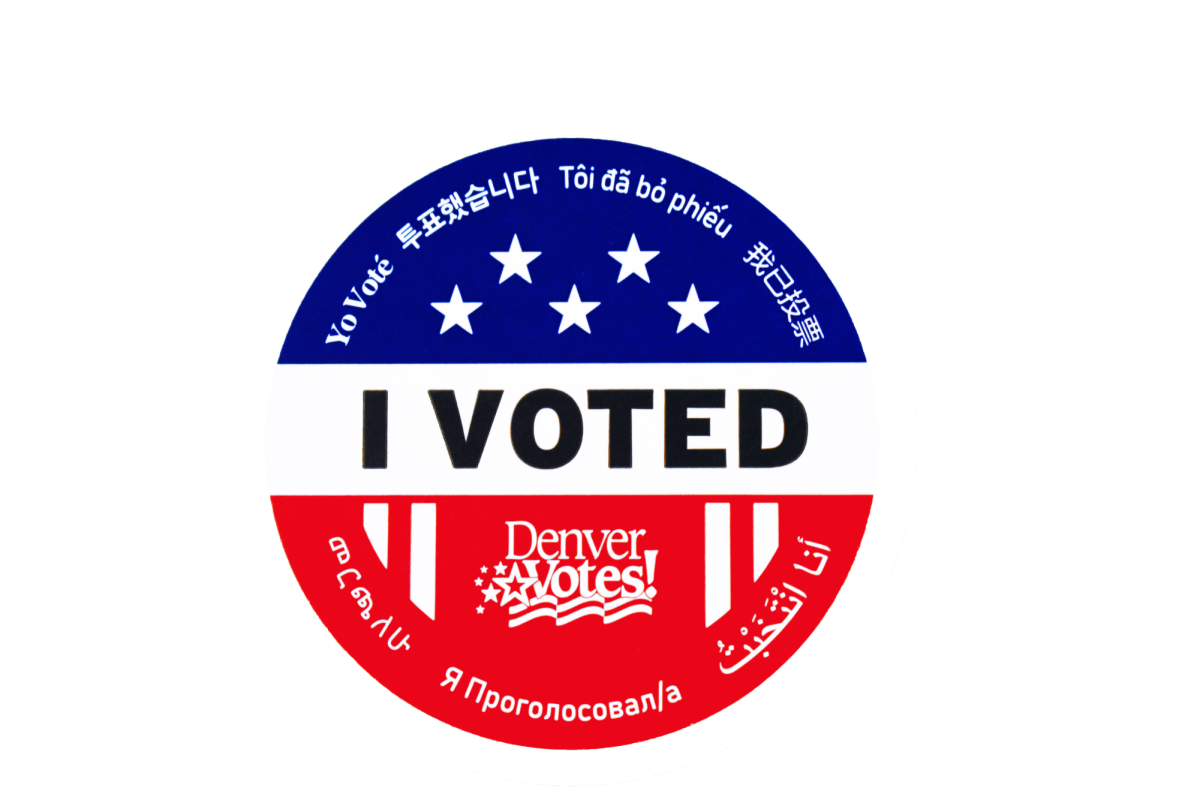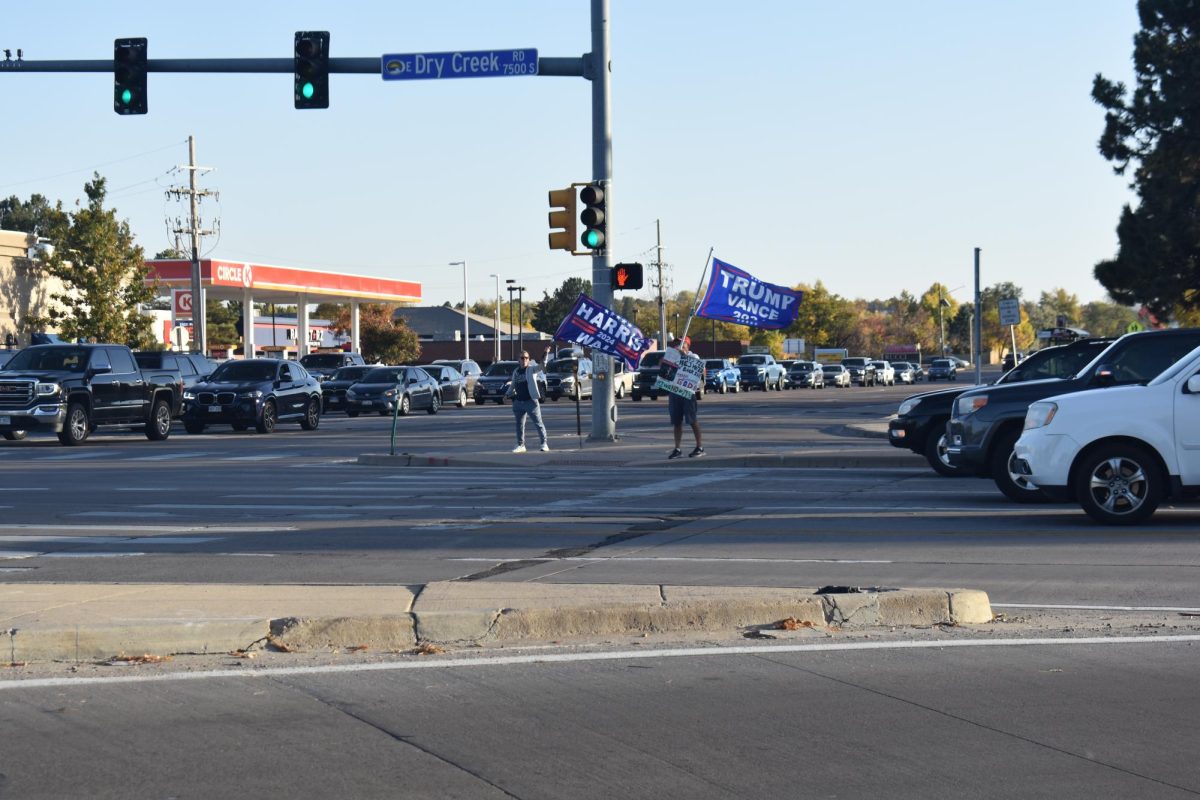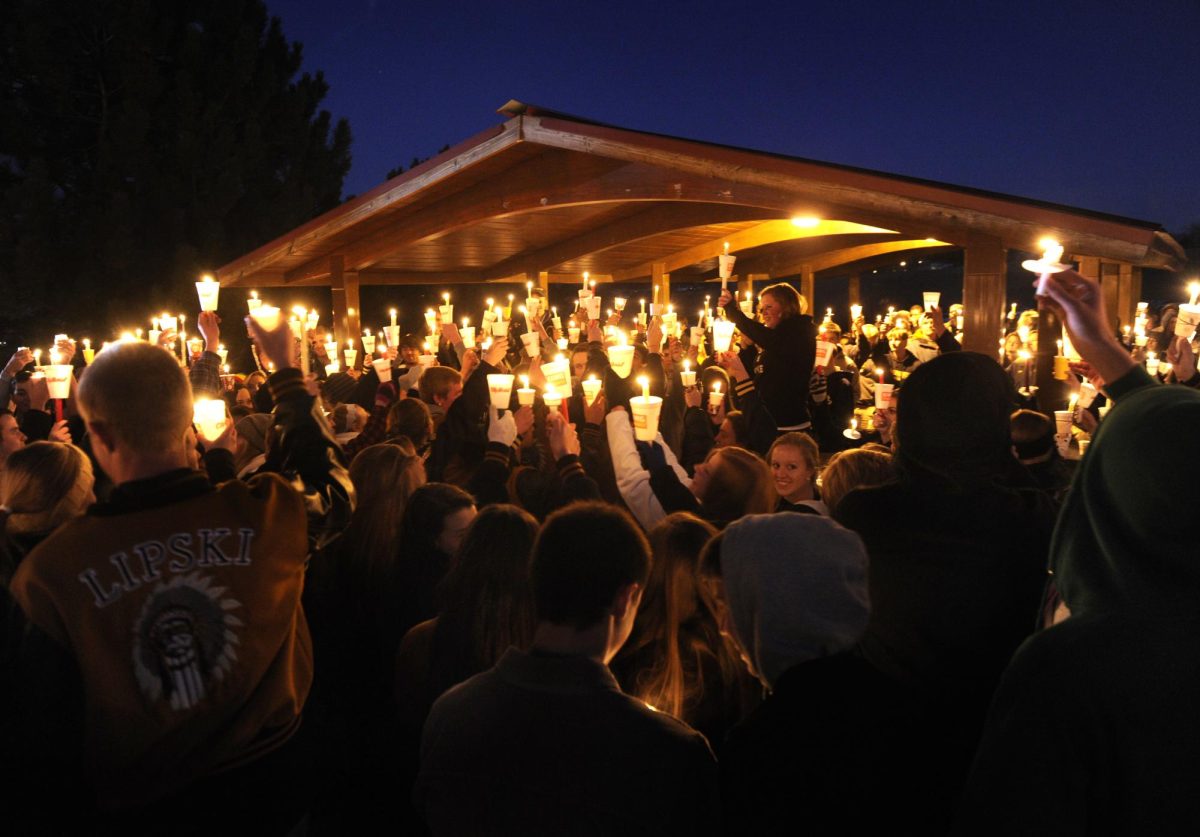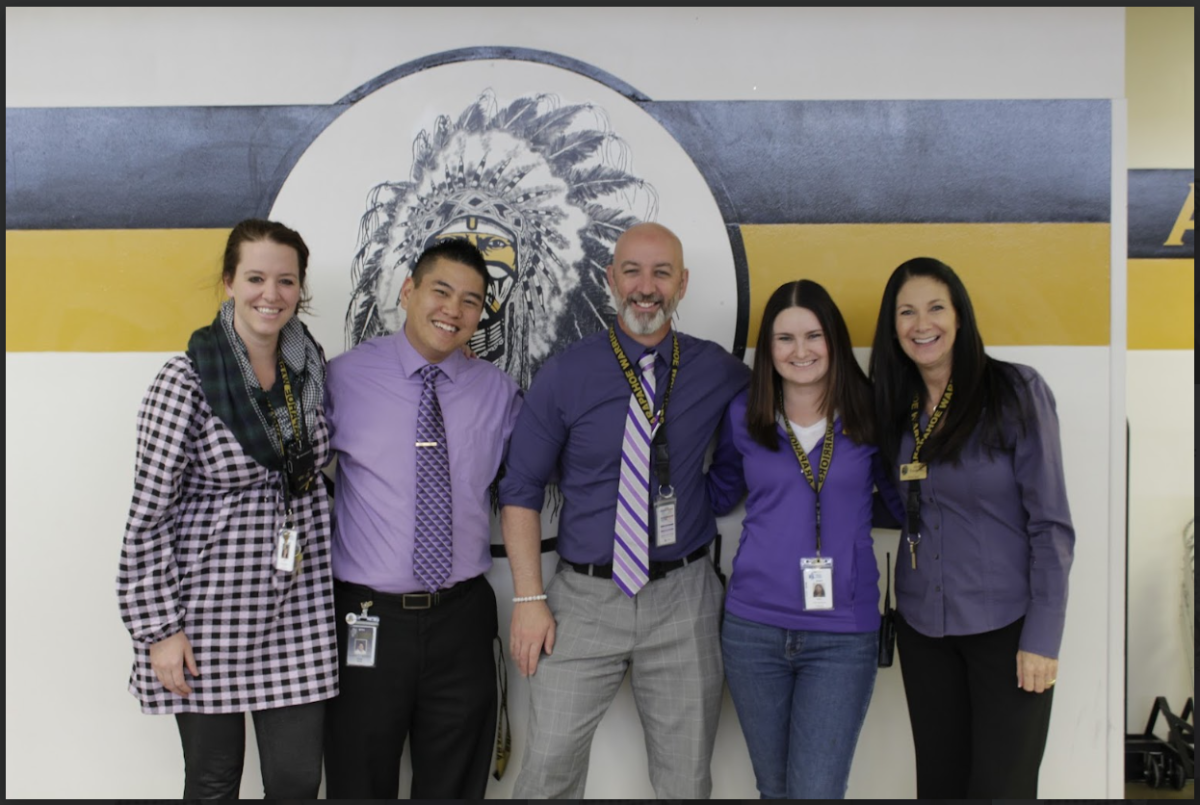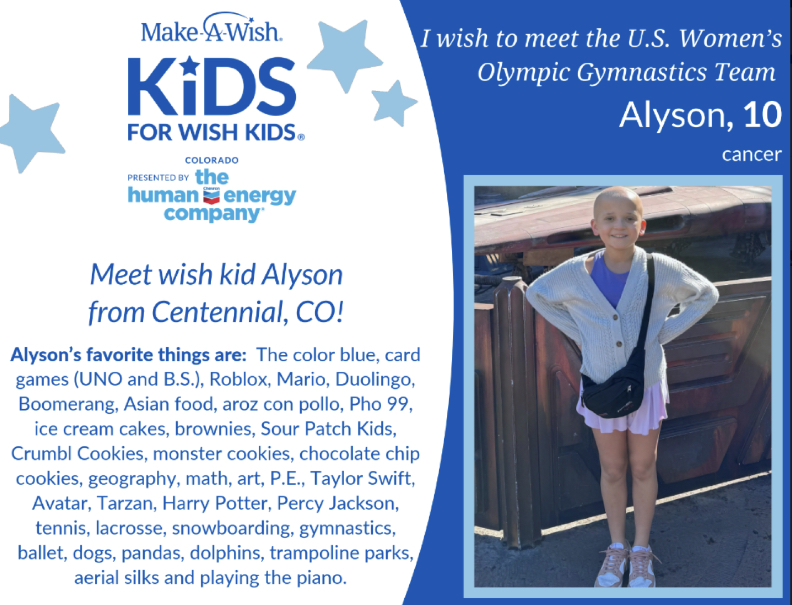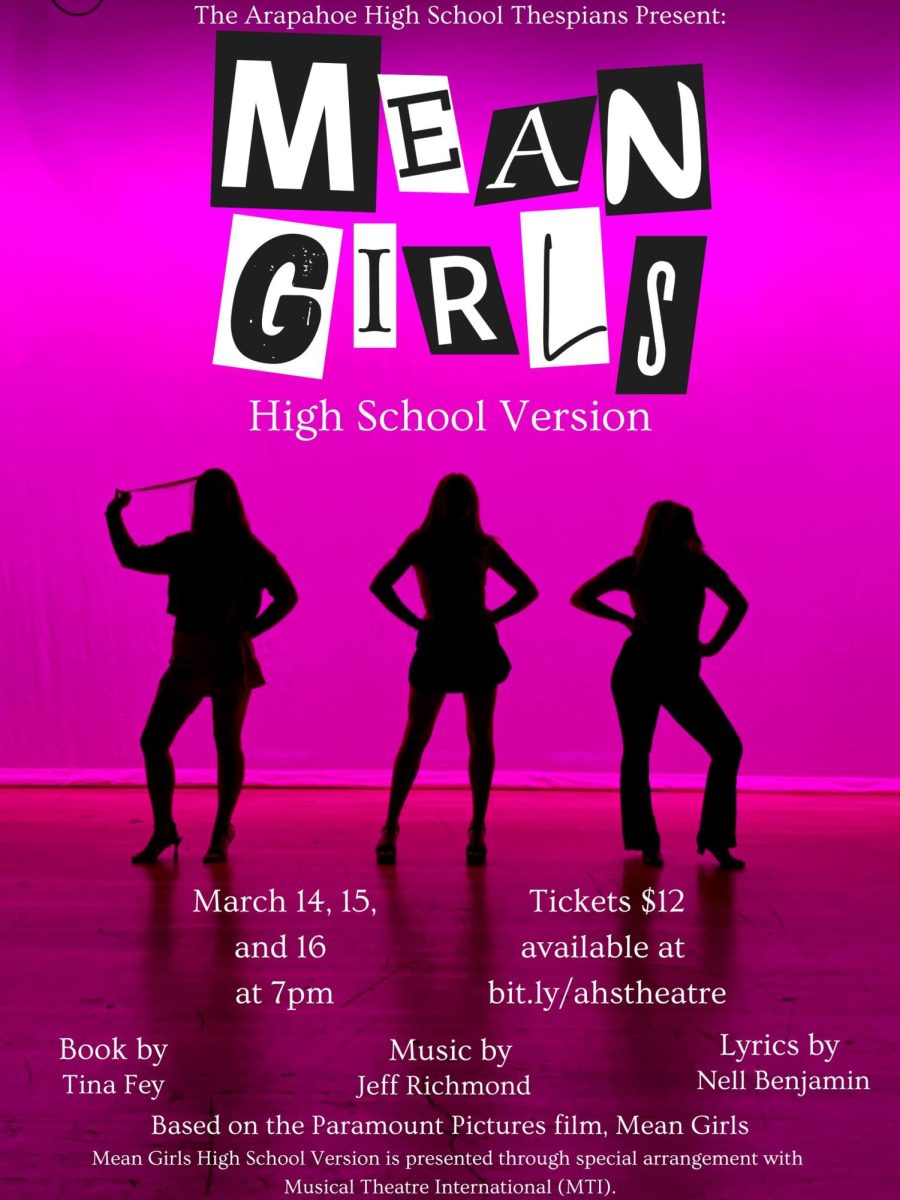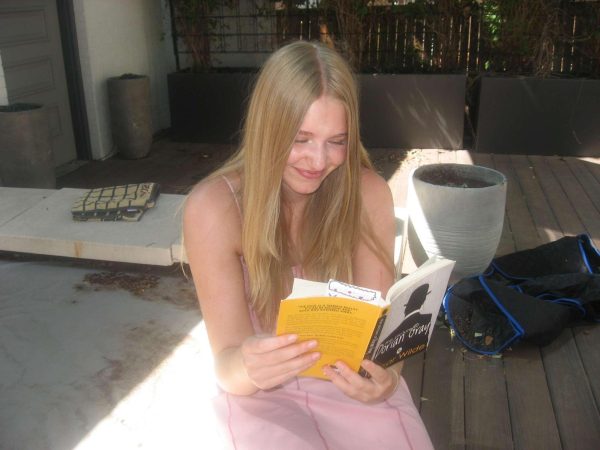With the 2024 general election just days away, the halls of Arapahoe High School are buzzing with politics. Red, Blue, or independent, despite the election’s potential impact on their futures, many students are eager to engage in the candidates and issues at hand–while others appear disengaged, echoing a national trend of youth voter apathy.
We talked to four government and history teachers about frustrations students have with the 2024 presidential candidates and the impact of social media when it comes to offering their own political views. Yet, with election results influencing everything from taxes to student loans, students, they said, should recognize the importance of being active participants in the democratic process. Even if you’re not old enough to vote, you’re never too young to make your voice heard.
From Apathy to Action
There seems to be a lack of excitement among students surrounding the 2024 general election, according to Alison Winn, U.S. history and government teacher.
“I’ve noticed over the last couple years, kids are just a little bit frustrated with the choice of candidates,” she said. “And there is a little growing frustration with the two-party system.”
Internet culture, and especially social media, play a part in this feeling of discontent, something U.S. history teacher Christine Thompson said has influenced student interaction and involvement.
“You can go somewhere on the internet and you get this echo chamber telling you that you’re right and feeding you information that aligns with your beliefs,” she said. “People aren’t willing to engage in nuance and question their own beliefs, or really hear or listen to what somebody who disagrees with them is going to say.”
AP government teacher Brad Meyer agreed that while a few elections ago, in 2008 and 2012, when Barack Obama was running, students were actively involved, but are more reluctant to engage with the candidates in the current election.
“Kids used to be willing to share what they believe politically,” he said. “Now they are really hesitant to do that, based on society and a lack of tolerance.”
Breaking Down Barriers
Low voter turnout among those aged 18-24 has been a norm for decades. According to the U.S. Census Bureau, since 1964, that age group has historically voted the least among all voters.
Still, Colorado had the second-highest voter turnout overall during the 2020 election, with about 76.41% according to the Election Lab at the University of Florida. Meanwhile, according to Tufts, the youth turnout rate in the Centennial State in that election was 63%.
But even when turnout is relatively high, most voters don’t take the care to really learn about the candidates, referendums, and other issues on the ballot, said AP U.S. history teacher Peter Weyrich. Students, on the other hand, receive a hands-on education at school.
“Our government class goes through the election, the ballot, and gives them resources,” he said. “We’ve been walking them through how to prepare to vote.”
Meyer added that informing students about the election builds up his trust in the youth vote.
“I am far more comfortable with a kid who’s in school having these conversations about registering to vote than people who are my age who don’t take (those conversations) up,” he said. “I would go to 16 for the voting age because you at least then have a structure of having a conversation that’s rational about an election.”
Why Understanding Issues Matters
The Colorado 2024 State Ballot Information Booklet, commonly called the Blue Book, is as dense as some phone books. In addition to elected officials, the ballot boasts 14 statewide measures (seven are proposed changes to the state constitution, five are proposed changes to state statutes and two are questions referred to the voters by the state legislature). On top of that, voters in different cities, counties and districts are asked to vote on additional measures.
It’s a lot to digest, but Thompson said it is important to understand every item on the ballot before you vote on it.
“When you look at proposed laws, they are often purposely written to mislead you,” she said. “You need to actually read about them instead of just looking through the ballot.”
And how much–or how little–students and registered voters choose to pay attention to the issues and candidates this election cycle, politics is simply everywhere, according to Winn.
“Whether or not you like it, the election is going to determine your tax rate, it determines your health care, it’s going to determine your student loans,” she said. “And so I think kids need to start to learn that it’s divisive, but it’s also essential for them to understand the process and be an engaged participant.”
That divisiveness is, no doubt, extremely polarizing–so much so, that regardless of the outcome, Meyer said, there will be a big response throughout the school after Election Day.
“It will manifest itself in our hallways, because there’s going to be people who are not happy,” he said.
Making Your Voice Heard
At Arapahoe, only (FIND STAT) of students are eligible to vote in this election. Regardless, there are other ways to participate in elections. Thompson said campaigns and interest groups are always looking for volunteers to help keep their organizations going.
“Also, talk to your friends who can vote, and make sure that they know where they can vote, where they can drop off their ballot, and know about the issues that you care about,” she said.
If there is a specific issue you care enough about, attend committee or school board meetings.
“Young people get listened to because they don’t show up very often,” Meyer said. “There are good stories of kids around here who went to committee hearings at our state Capitol and changed the direction of a law.”
He pointed to a group of Arapahoe students who once influenced the Colorado Legislature to alter a law on cosmetology licensing.
Winn said she hears students say they don’t like politics, but noted a recent tweet from Democratic vice presidential nominee Tim Walz: “I’ll often have people tell me, ‘I’m not really that into politics.’ Well, too damn bad–politics is into you!”
The more engaged students are in politics, Winn said, the more open they often are to engaging in meaningful dialog with others. “If you’re not voting,” she said, “you’re not promoting change, which means decisions will be made by those who do vote.”
AHS Student On Why they are Voting: https://arapahoextra.com/14380/uncategorized/ahs-students-on-…-they-are-voting/
Biases in Polling: https://arapahoextra.com/14382/uncategorized/biases-in-voting/

